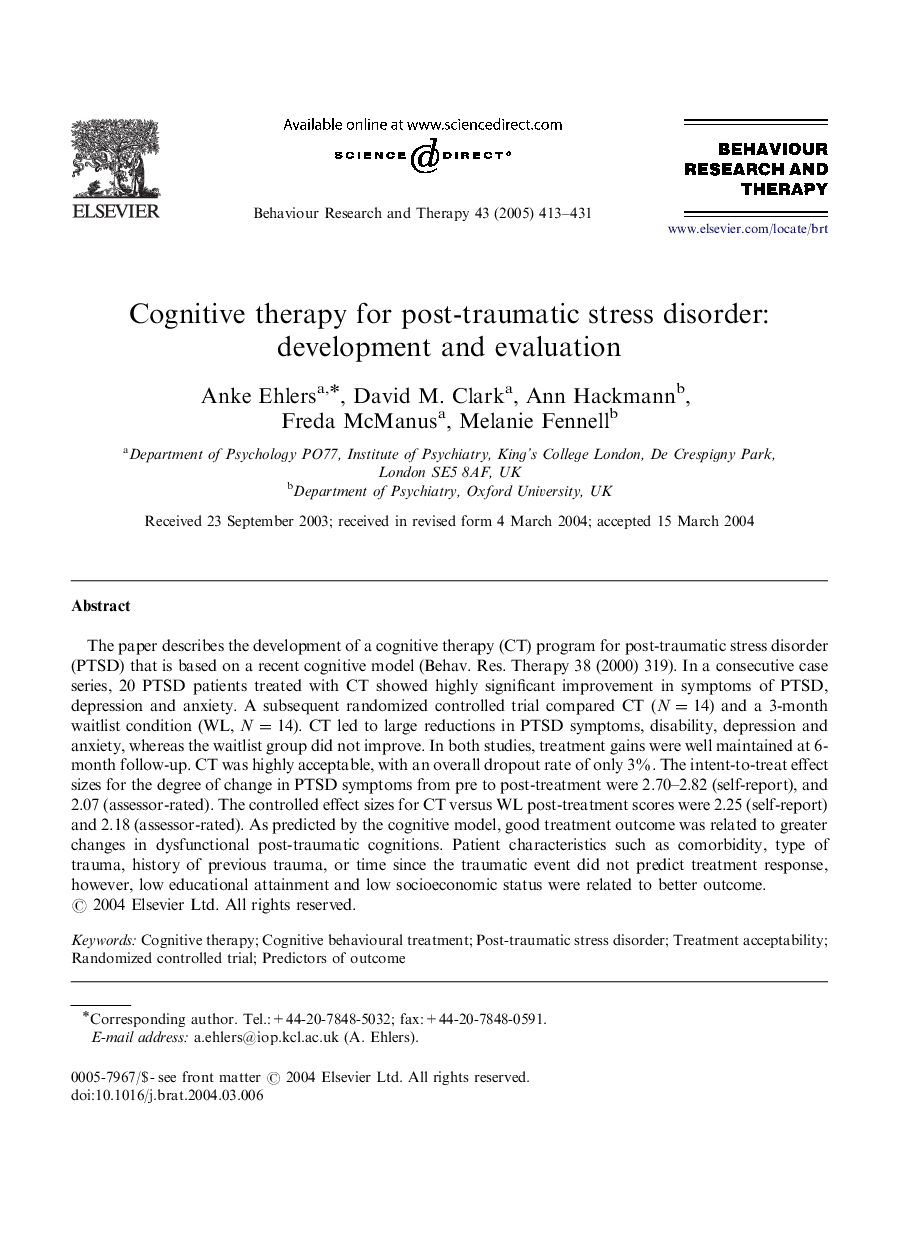| کد مقاله | کد نشریه | سال انتشار | مقاله انگلیسی | نسخه تمام متن |
|---|---|---|---|---|
| 10444995 | 916180 | 2005 | 19 صفحه PDF | دانلود رایگان |
عنوان انگلیسی مقاله ISI
Cognitive therapy for post-traumatic stress disorder: development and evaluation
دانلود مقاله + سفارش ترجمه
دانلود مقاله ISI انگلیسی
رایگان برای ایرانیان
کلمات کلیدی
موضوعات مرتبط
علوم پزشکی و سلامت
پزشکی و دندانپزشکی
روانپزشکی و بهداشت روانی
پیش نمایش صفحه اول مقاله

چکیده انگلیسی
The paper describes the development of a cognitive therapy (CT) program for post-traumatic stress disorder (PTSD) that is based on a recent cognitive model (Behav. Res. Therapy 38 (2000) 319). In a consecutive case series, 20 PTSD patients treated with CT showed highly significant improvement in symptoms of PTSD, depression and anxiety. A subsequent randomized controlled trial compared CT (N=14) and a 3-month waitlist condition (WL, N=14). CT led to large reductions in PTSD symptoms, disability, depression and anxiety, whereas the waitlist group did not improve. In both studies, treatment gains were well maintained at 6-month follow-up. CT was highly acceptable, with an overall dropout rate of only 3%. The intent-to-treat effect sizes for the degree of change in PTSD symptoms from pre to post-treatment were 2.70-2.82 (self-report), and 2.07 (assessor-rated). The controlled effect sizes for CT versus WL post-treatment scores were 2.25 (self-report) and 2.18 (assessor-rated). As predicted by the cognitive model, good treatment outcome was related to greater changes in dysfunctional post-traumatic cognitions. Patient characteristics such as comorbidity, type of trauma, history of previous trauma, or time since the traumatic event did not predict treatment response, however, low educational attainment and low socioeconomic status were related to better outcome.
ناشر
Database: Elsevier - ScienceDirect (ساینس دایرکت)
Journal: Behaviour Research and Therapy - Volume 43, Issue 4, April 2005, Pages 413-431
Journal: Behaviour Research and Therapy - Volume 43, Issue 4, April 2005, Pages 413-431
نویسندگان
Anke Ehlers, David M. Clark, Ann Hackmann, Freda McManus, Melanie Fennell,